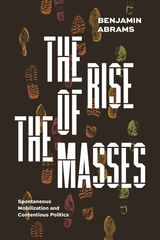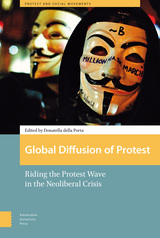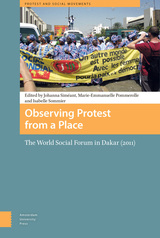Coloniality of the US/Mexico Border: Power, Violence, and the Decolonial Imperative
University of Arizona Press, 2018
Cloth: 978-0-8165-3719-8 | eISBN: 978-0-8165-3884-3 | Paper: 978-0-8165-4039-6
Library of Congress Classification HM886.H47 2018
Dewey Decimal Classification 972.1
Cloth: 978-0-8165-3719-8 | eISBN: 978-0-8165-3884-3 | Paper: 978-0-8165-4039-6
Library of Congress Classification HM886.H47 2018
Dewey Decimal Classification 972.1
ABOUT THIS BOOK | AUTHOR BIOGRAPHY | REVIEWS | TOC
ABOUT THIS BOOK
National borders are often taken for granted as normal and necessary for a peaceful and orderly global civil society. Roberto D. Hernández here advances a provocative argument that borders—and border violence—are geospatial manifestations of long histories of racialized and gendered colonial violence.
In Coloniality of the U-S///Mexico Border, Hernández offers an exemplary case and lens for understanding what he terms the “epistemic and cartographic prison of modernity/coloniality.” He adopts “coloniality of power” as a central analytical category and framework to consider multiple forms of real and symbolic violence (territorial, corporeal, cultural, and epistemic) and analyzes the varied responses by diverse actors, including local residents, government officials, and cultural producers.
Based on more than twenty years of border activism in San Diego–Tijuana and El Paso–Ciudad Juárez, this book is an interdisciplinary examination that considers the 1984 McDonald’s massacre, Minutemen vigilantism, border urbanism, the ongoing murder of women in Ciudad Juárez, and anti-border music.
Hernández’s approach is at once historical, ethnographic, and theoretically driven, yet it is grounded in analyses and debates that cut across political theory, border studies, and cultural studies. The volume concludes with a theoretical discussion of the future of violence at—and because of—national territorial borders, offering a call for epistemic and cartographic disobedience.
In Coloniality of the U-S///Mexico Border, Hernández offers an exemplary case and lens for understanding what he terms the “epistemic and cartographic prison of modernity/coloniality.” He adopts “coloniality of power” as a central analytical category and framework to consider multiple forms of real and symbolic violence (territorial, corporeal, cultural, and epistemic) and analyzes the varied responses by diverse actors, including local residents, government officials, and cultural producers.
Based on more than twenty years of border activism in San Diego–Tijuana and El Paso–Ciudad Juárez, this book is an interdisciplinary examination that considers the 1984 McDonald’s massacre, Minutemen vigilantism, border urbanism, the ongoing murder of women in Ciudad Juárez, and anti-border music.
Hernández’s approach is at once historical, ethnographic, and theoretically driven, yet it is grounded in analyses and debates that cut across political theory, border studies, and cultural studies. The volume concludes with a theoretical discussion of the future of violence at—and because of—national territorial borders, offering a call for epistemic and cartographic disobedience.
See other books on: Coloniality | El Paso (Tex.) | Mexican-American Border Region | Sociological aspects | Violence in Society
See other titles from University of Arizona Press






























